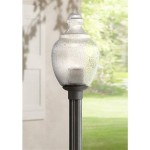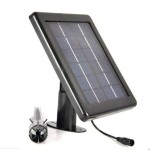Essential Aspects of Lighting Techniques Outdoor Photography
Lighting plays a crucial role in outdoor photography, influencing the overall mood, atmosphere, and composition. Understanding the essential aspects of lighting techniques is key to capturing stunning images that convey the beauty and emotion of nature.
In this article, we'll explore the fundamental lighting techniques for outdoor photography, emphasizing their significance and providing practical tips for implementation.
1. Utilizing Natural Light Sources
Natural light is the primary source of illumination in outdoor photography. Understanding the quality and direction of light at different times of the day is essential. Soft, warm light during sunrise and sunset, known as the golden hour, creates flattering and picturesque images.
Conversely, harsh midday light casts strong shadows, requiring techniques like fill flash or reflectors to balance exposure.
2. Controlling Direction of Light
The direction of light significantly impacts the mood and depth in photographs. Front lighting creates a flat, evenly lit image, while side lighting accentuates textures and creates dramatic shadows. Backlighting, with its silhouette effect, evokes a sense of mystery and intrigue.
Understanding the interplay of light direction is crucial for crafting expressive and visually engaging compositions.
3. Utilizing Reflectors and Diffusers
Reflectors and diffusers are essential tools for manipulating light outdoors. Reflectors bounce light into shaded areas, filling in shadows and softening the overall image. Diffusers, on the other hand, spread light more evenly, reducing harsh highlights and creating a more natural look.
These tools provide photographers with greater control over lighting conditions, enabling them to capture images that match their creative vision.
4. Exposure Compensation and Metering
Proper exposure ensures that the subject is captured with the desired brightness and detail. Outdoor photography often presents challenging lighting situations, making exposure compensation necessary to adjust the camera's exposure settings.
Understanding metering modes and using spot metering techniques allows photographers to precisely measure light and achieve optimal exposure in varying conditions.
5. Composition and Perspective
In outdoor photography, lighting techniques also influence composition and perspective. For instance, placing the subject against a brightly lit background creates a sense of depth and separation, while using natural leading lines guides the viewer's eye through the image.
By considering lighting in conjunction with composition, photographers can create dynamic and captivating images that tell a compelling story.
Conclusion
Mastering lighting techniques is essential for capturing stunning and expressive outdoor photographs. By understanding natural light sources, controlling light direction, utilizing reflectors and diffusers, practicing exposure compensation and metering, and considering composition and perspective, photographers can harness the power of light to create images that evoke emotion, convey a message, and leave a lasting impression.
Indoor Outdoor Lighting Setups Simple Diagrams For Learning Photography

8 Invaluable Tools For Outdoor Photographers On A Sunny Day B H Explora

Creative Lighting Techniques For Portrait Photographers Rangefinder

How To Mix Ambient Light And Fill Flash For Outdoor Portraits

The Best Lighting For Outdoor Photography Focus

Help The Sun Using Artificial Light In Outdoor Photography Learn By Zoner Photo Studio

Photography Lighting Tips Create A Photo Studio Anywhere

11 Outdoor Portrait Photography Tips For Easy Shots

Essential Lighting Tips For Outdoor Photography Setup Techniques

Natural Light Photography Tutorial For Beginners With Diagrams
Related Posts







